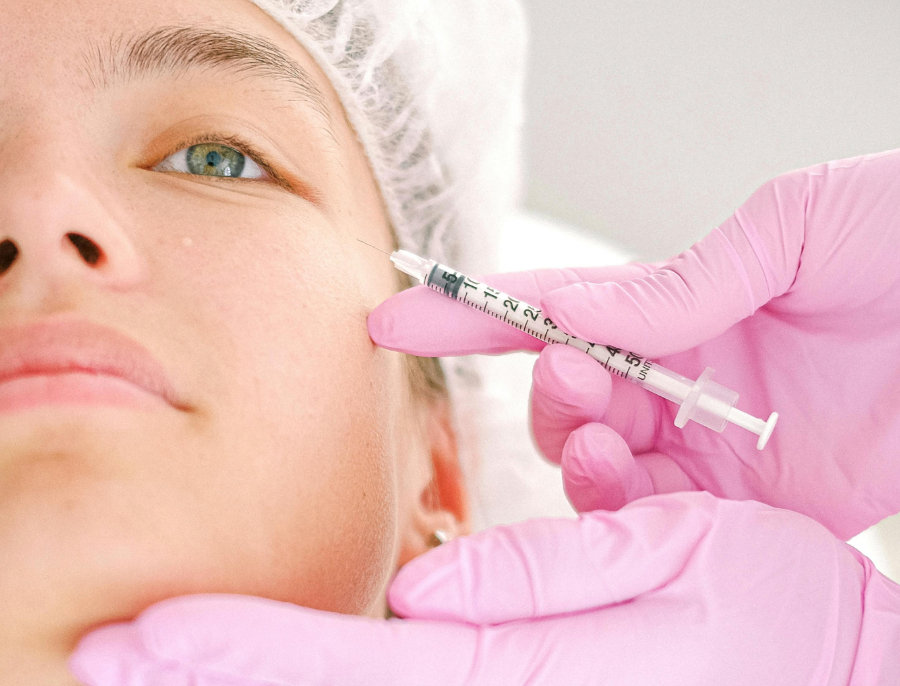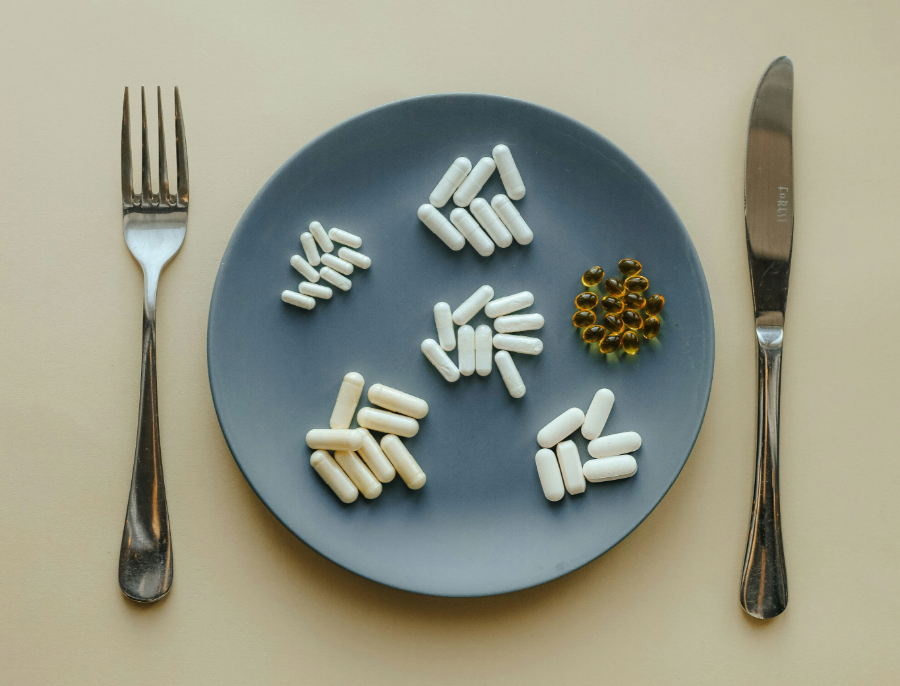14 Myths About Depression
We have a lot of light-hearted moments here at Dear Media, but today we’re getting real about something serious: depression. It’s one of the most commonly diagnosed mental health disorders in the U.S., but many people keep it behind closed doors.
If you just tensed up even reading the word, we’re with you—you’re not alone. But here’s the thing: the convo around mental health and treatment options has def shifted (thankfully), but we still have a long way to go.
We’re sure that you all remember hearing things about depression that just simply aren’t true—those myths can make it soooo much harder for people to understand what’s really going on. That’s why today, we’re talking about it!
We’re breaking down those stigmas and common myths about depression to give you the real facts. It’s time to clear the air and talk about symptoms of depression in a way that’s open, honest, and supportive.

Depression is a medical condition that can stop you from doing the things you love—it can even stop you from feeling love for the things you love. It’s dark, isolating, and hard to get out of once you’re in it. But, you’re not alone! Let’s get into the myths and facts about depression—you may not even know how much you need to hear it.
14 Myths About Depression
Myth 1: Depression is the same as feeling really sad.
We’re keepin’ it real here—a lot of people say they know depression because they feel sad. And sure, depression absolutely includes sadness, but it involves many more symptoms than just feeling sad. Just listen to this episode of With Whit to see more of what we mean.
While being sad is a symptom, there are tons of other symptoms of depression, including: Loss of interest in activities, trouble falling or staying asleep, changes in appetite or weight, difficulty concentrating, and deep and dark thoughts that nobody deserves to experience. These symptoms will typically persist for at least two weeks, and it can be debilitating AF.
Basically, it goes beyond than regular sadness—people need to recognize it as a serious mental health condition. If you’re experiencing symptoms of depression, please remember you have so many resources that can help you get through this. And, check out this episode of Him & Her Show for a little reassurance.
Myth 2: Depressed people are lazy.
When people are experiencing depression, they’re often experiencing a multitude of symptoms that make it hard to get things done. Not having energy due to lack of sleep and food, difficulty focusing, problems with confidence, and lack of interest or passion for daily activities—these can all make regular, day-to-day tasks feel like the most exhausting thing in the world.
Depression can affect your overall drive, but that in no way means that you’re lazy and just don’t feel like doing it. Truth be told, people with depression want to have the energy to do these things, but it’s hard! And we need to hold space for that. Check out these mental health reminders and listen to this episode of House Guest.
Myth 3: Depression looks and feels the same for everyone.
Some people who deal with depression can carry out their best morning routine for mental health, and some can’t make it out of bed. There are people who put on their biggest smile and laugh the day away, while others can’t make a smile that reaches their eyes.
Depression looks different for everyone. One person’s capabilities may not be the same as another’s. And, everyday can feel different. The worst thing you can do it compete and compare—your struggles are not somebody else’s. Don’t beat yourself up because depression looks and feels different for you than it may for someone else.
Myth 4: Everyone can be treated the same way for depression.
OMG, if only it were this easy. There are so many different treatments for depression. For better or for worse, it’s not a one-size-fits-all situation.
While you may need a little time in the sun and a dose of your morning meds, your friend may need consistent check-ins with a mental health professional and lots of R&R time a family member. There’s also tons of different therapies that benefit different people in different ways. They’re cognitive behavioral therapy (CBT), dialectical behavior therapy (DBT), exposure therapy, talk therapy—the list goes on and on.
Basically, we’ll say this a million times—treating depression is a personal journey, not a race or a competition.

Myth 5: Feeling depressed is normal.
This myth seems to be on its way out, and we’re all in favor of kicking it to the curb. We’re pretty sure this idea that feeling depressed is normal is coming from people who aren’t ready to process their own depression.
We get it. But also—not processing is only going to make it worse. We’re here to tell you feeling depressed is NOT normal, and you don’t have to feel that way. It’s a really, well, dated way of thinking, right? When people normalize depression like it’s just something that everyone deals with, this is when we get the “ignore it and it will go away” mindset.
Whoever you hear it from, it might be time to share 5 Ways to Process Your Feelings and How They Can Care For Their Mental Health from Dear Gabby.
Myth 6: Depression is all in your head.
Ahhh, the age-old myth: it’s all in your head! We’re instantly rolling our eyes with you. So look, depression is in your head, but like… chemically. It’s a MEDICAL CONDITION, not a mindset! Just check out how Khloe Kardashian shared her brain scans and what that meant for her journey.
The National Institute of Mental Health is working overtime to prove to the world that depression is associated with some sort of chemical imbalance in the brain. Whether that be from mood regulation, genetic vulnerability, or just a straight-up traumatic life event. Nonetheless, just because it’s scientifically in your head doesn’t make it any less real.
Myth 7: Depression only happens in response to a traumatic life event.
This is one of the most common myths about depression, but the truth is that anyone can experience depression. You may even have a depressive episode triggered by positive life events. Everyone’s different.
That being said, major life events, especially negative ones, are risk factors for experiencing depression. When it does happen, healing that trauma may be your best method of treating depression.
Check out these episodes for more on healing, uncovering, and acknowledging trauma:
- How Toxic Traumas Hurt Your Health – The Art of Being Well
- Stop the Stigma and Shift the Shame: A Spiritual Conversation About Mental Health and Trauma – Dear Gabby
- Overcoming Dark Days, the Power of Prayer, & Finding True Love – Barely Filtered
Myth 8: Antidepressants make you less of yourself.
Here’s a fact: Depression can be treated with the right medication. And we’re not saying that this is the experience for everyone! But all in all, meds are designed to support the balance of neurotransmitters that can lead to depression. What does this help? Pulling people out of that “funk” by relieving symptoms.
The good thing about medication is that you can stop taking it if you don’t like how it makes you feel. That doesn’t mean you have to rule out medication altogether, but that one medication may not be for you.
If you’ve been living with depression for a long time, medication can be life-saving. There’s more on Living With Mental Illness and De-Stigmatizing Medication on Real Pod.
Myth 9: Talking about it will make it worse.
Some people think they have to only talk positively to overcome depression. That’s just straight-up not gonna work, and it can actually be toxic.
Toxic positivity happens when you can’t respond to or process negative things happening in the world around you. It can make it look like you lack empathy, or the ability to hold space for other’s emotions. It can be one of the signs of depression as well.
You deserve space for your feelings, too. So talk about it! Talk about the sh*tty feelings, the days you don’t want to get out of bed, the dark thoughts—share it all. This episode of Because ily talks more about the importance of friends who hold that safe space for you—no judgement involved.
Myth 10: Depressed people will always feel depressed.
Whatever you do, do NOT believe this one! There is a light at the end of the tunnel, no matter how deep in there you feel you are.
Not every treatment method is gonna work for everyone, and it’s important to understand that. But the truth is, something will work. If you give it time, you’ll find your perfect solution. It can feel like a long, hard, and dark road, but we want to see you come out on the other side.
Listen to this episode of With Whit to hear about her experience with therapy, and this episode of MOOD to hear more advice on therapy!
Myth 11: Depression only affects certain people.
This myth isn’t only false, but it’s extremely harmful! The thought-process that depression only affects women, or teenagers, or certain races, or specific ages is what makes people so anxious to open up in the first place. Nothing feels worse than opening up to someone just for them to kinda shrug their shoulders and be like, “Well, yeah, makes sense.”
The honest truth is that depression is a common mental health disorder and it doesn’t discriminate. It doesn’t matter who you are, what you go through, where you came from, or what you’re dealing with—anyone can have depression.
Myth 12: If you’re functioning just fine, then you’re not depressed.
The ideology that if you’re acting normal then you can’t possibly be depressed is soooo far from the truth. This is what we call “high-functioning depression” and it’s just as real and valid as every other type.
A lot of people deal with depression the only way they know how to: mask the symptoms and keep it pushin’. But even those with high-functioning depression can still experience a major depressive episode, you may just not see it. This just goes to show that again, you never know what someone’s dealing with—being kind and considerate goes a long way.
Listen to this episode of Note to Self to figure out if you have high-functioning depression and what you can do about it.
Myth 13: You can’t help someone with depression if you’ve never experienced it first-hand.
If this were the case, we may have a lot less therapists, mental health professionals, and qualified doctors in the field. Just because someone may not know what depression feels like personally does not mean that they can’t still show up for you.
This is true for friends, family members, and other loved ones, too. Just because they don’t fully understand what you’re going through doesn’t mean that they can’t offer support, compassion, and be there for you in times you need it most. Sometimes just knowing you have people in your corner is the thing you need to keep hope.
This episode of House Guest is a good reminder that you don’t have to do everything on your own, and this episode of Conversations with Cam reminds us that friends are here to serve plenty of purposes.
Myth 14: Seeking help is a sign of failure.
Don’t even get us started on this one. If there’s one thing you take from this post, let it be this: seeking help is strong. It’s resilient, it’s powerful, and it’s necessary. There’s courage in saying. “Hey, you know what? I’m struggling and I need help.
You don‘t have to carry your feelings and hardships on your own, and you shouldn’t! There are so many people out there who love you and want to help you—even people you haven’t met yet. Never ever ever let anyone tell you that asking for help is weak, it’s quite literally the exact opposite.
This episode of Him & Her talks all about discovering your inner strength and ridding yourself of fear.

People with depression deserve to be treated with respect and kindness.
At the end of the day, depression is real, it’s hard, and it’s not a straight and narrow path. But, you will come out there other side somehow, someway. There’s been way too many myths for too long, and we’re sick of it. It’s time to set the record straight so people can be informed and know exactly how to take action.
Also, don’t forget to check out the best mental health podcasts and mental toughness podcasts! They’ll give you that reassuring mood boost that you deserve right now.
Check out the Dear Media blog for everything from the latest pop culture updates and relationship advice. And, don’t forget to check out the DM shop for tons of must-have products! You deserve to treat yourself to the “Angels Are Always With You” mug—a good reminder that you’re never alone.




















Leave a Reply